When could Tri-Cities get a sobering center after ex-juice plant project abandoned?
As construction plans are nearing completion for the Tri-Cities’ first recovery center for mental health and addiction, Lourdes Health has a plan that could see one of the key services up and running within months.
Preliminary design plans are expected to be finished by the end of the month for the Columbia Valley Center for Recovery. It will be housed at the old Kennewick General Hospital building at 900 S. Auburn St. in Kennewick.
But Lourdes has come forward with a plan to get a separate 23-hour sobering center up and running ahead of the rest of the facility.
Franklin County leaders could approve that as early as this month if they’re happy with the costs.
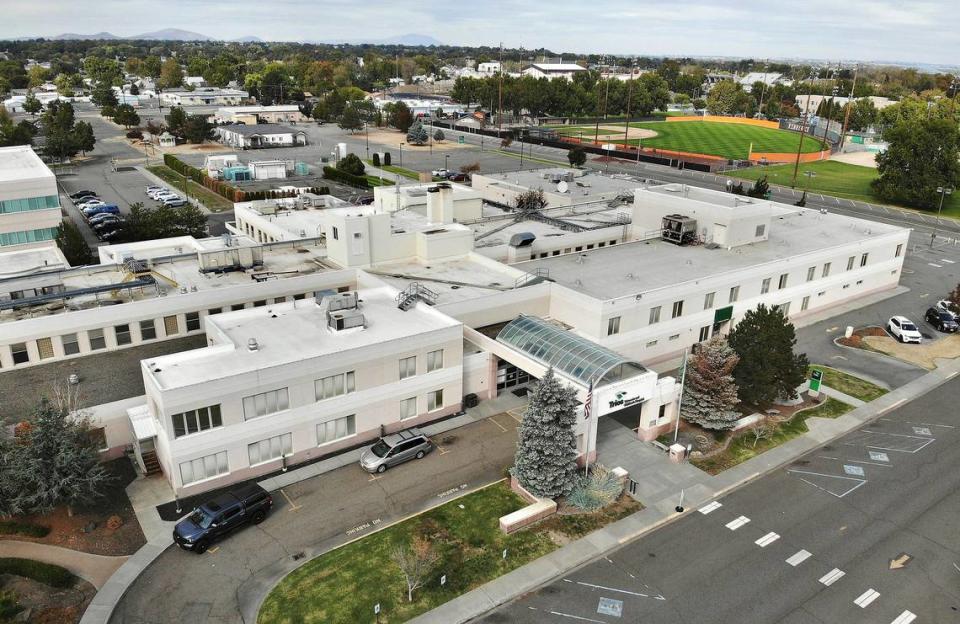
Recovery center progress
City and county leaders will be getting a look at program layouts for the recovery center over the next few weeks, to get an idea of what part of the building will likely be used for each of the four proposed services.
Contractor Bouten Construction estimates hammers will start swinging in August with crews beginning interior demolition work and mechanical upgrades. They should also have a maximum guaranteed price for the facility by then. A floor plan will be finalized, and the design process is expected to wrap up, by October.
The recovery center is currently on track for a Dec. 2025 completion.
The facility will be used for in-patient residential treatment, secure withdrawal and 23-hour sobering services.
The fourth service, crisis stabilization, will also be based there, but what shape that takes will depend on whether they’re able to renegotiate the deed restrictions with former owner LifePoint Health, which owns Trios and Lourdes.
Crisis stabilization involves treatment for clients with primary diagnosis for mental illness. They’ll be assessed, diagnosed, and treated without the need for long-term hospitalization, according to the Recovery Center’s website. Typical stays will be less than five days, but can be longer, either voluntarily or through court order.
Unfortunately, movement on the deed restrictions hasn’t made a lot of progress, Benton County Deputy Administrator Matt Rasmussen told the bi-county Behavioral Health Advisory Committee last week.
Rasmussen said they hoped to negotiate “right of first refusal” with LifePoint, meaning the longer stay treatment would first be offered to their hospitals, and if they didn’t have capacity, the recovery center could take it on. They rejected that offer.
Lourdes’ CEO Mark Holyoak said he believes the likely reason for the rejection comes down to the language used in the restriction and potential for liability. He said he would go back to LifePoint’s board for clarification.
The deed restriction was originally placed on the old KGH building to prevent a competitor coming in and offering identical services to Trios and Lourdes, but it’s proven to be a roadblock for the recovery center.
Benton County bought the facility for the recovery center in 2022 for $1.6 million.
The building is a bout 193,000-square feet and sits on eight-acres. County crews have been working to repair extensive damage to the building done by vandals when it sat vacant.
The county put damage estimates at $3,000 to $4,000 a day when they declared an emergency in order to lock the building down.
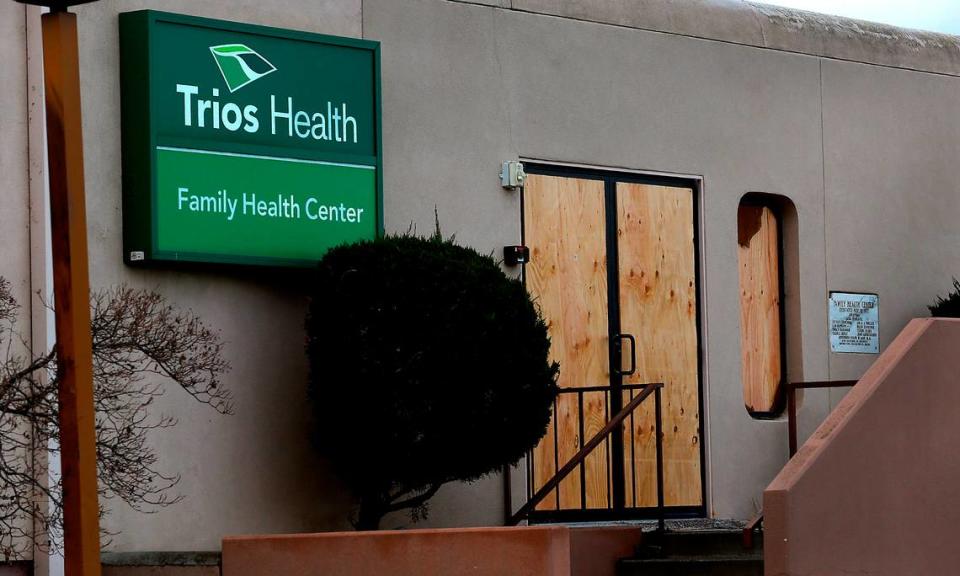
Rasmussen said they’ll continue working with LifePoint, and hopefully find a way to bring the crisis stabilization online at that building.
Benton County had initially looked at offering that service a few blocks away at a property they bought in the old Welch’s juice plant, but the renovation costs ended up being much higher than anticipated. They still own that building, but plans for its use are on hold for now.
Using that facility would have added an estimated $6 million to the recovery center’s price tag, Rasmussen told the committee.
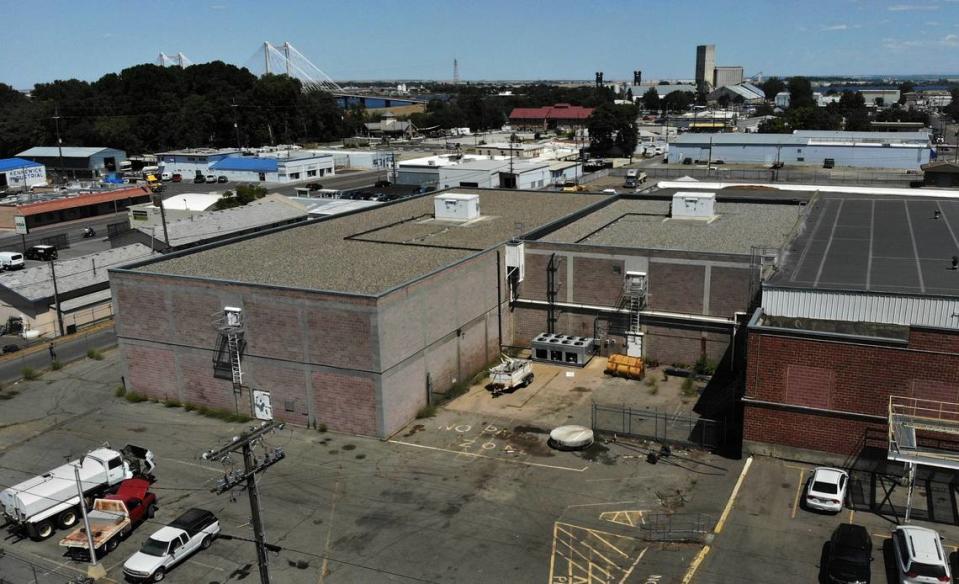
Sobering center
In the meantime though, Holyoak said there is something Lourdes can do to make a big difference: open a sobering center at its Pasco campus.
If approved funding is approved by Franklin County commissioners, they believe it could open within three to six months. That timeframe is almost completely dependent on licensing through the state. The sobering center would be treated as an outpatient service, overseen by the main hospital.
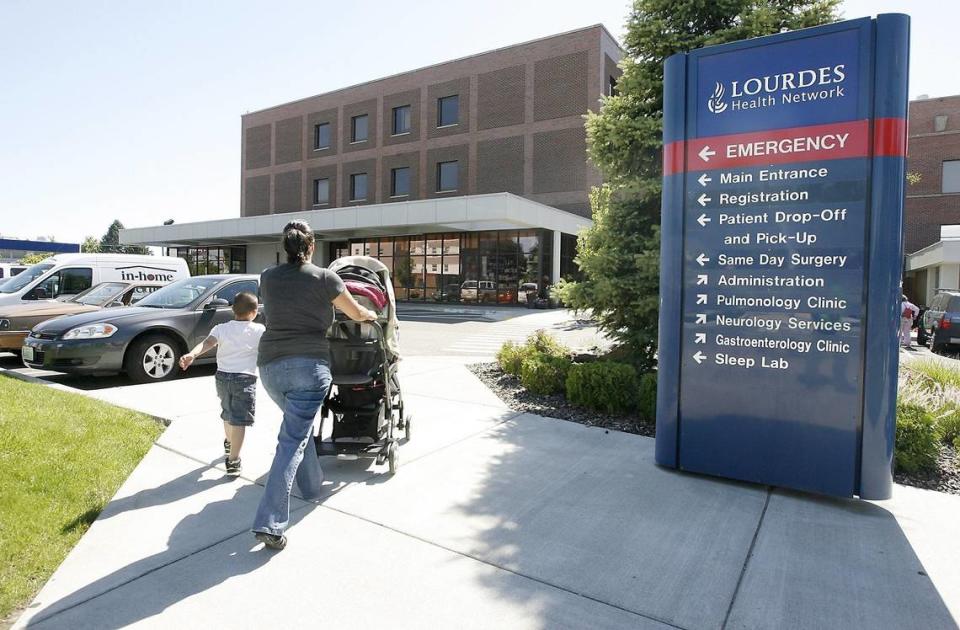
They plan to use a building the hospital leases at 516 W. Margaret St., between the hospital and the Franklin County Courthouse.
The sobering center would operate as a stop-gap between now and when the full recovery center opens. Once the larger facility is open, they plan to reevaluate needs, but it’s likely 23-hour sobering services could continue being offered at both locations.
The sobering center is a key ask from the local hospitals and law enforcement, because it creates a way to divert non-emergency patients from the ER waiting rooms and helps police offer options beyond just taking someone to jail.
The primary costs for the sobering center will be the staff. Holyoaks said any renovation needed will be done by Lourdes, but he doesn’t expect much to be needed after a recent walk-through.
Annually it will cost $900,000 to $1 million to operate, according to a Lourdes estimate presented to Franklin County commissioners last week.
That’s nearly all staffing costs, with the difference between the low and high estimates coming from salaries. The estimated wages for most of the employees — peer recovery specialists and withdrawal aids — will range from $19 to $23 per hour.
They anticipate having about a dozen employees for 24/7 staffing with employees working 12-hour shifts with 16 beds in the facility.
A sobering center would be a voluntary recovery option, which means patients can come and go. They can stay for just a few hours or up to 23. For patients who want to get clean, the peer recovery specialists will help direct them to longer term care options, and get them started on their sobriety journey.
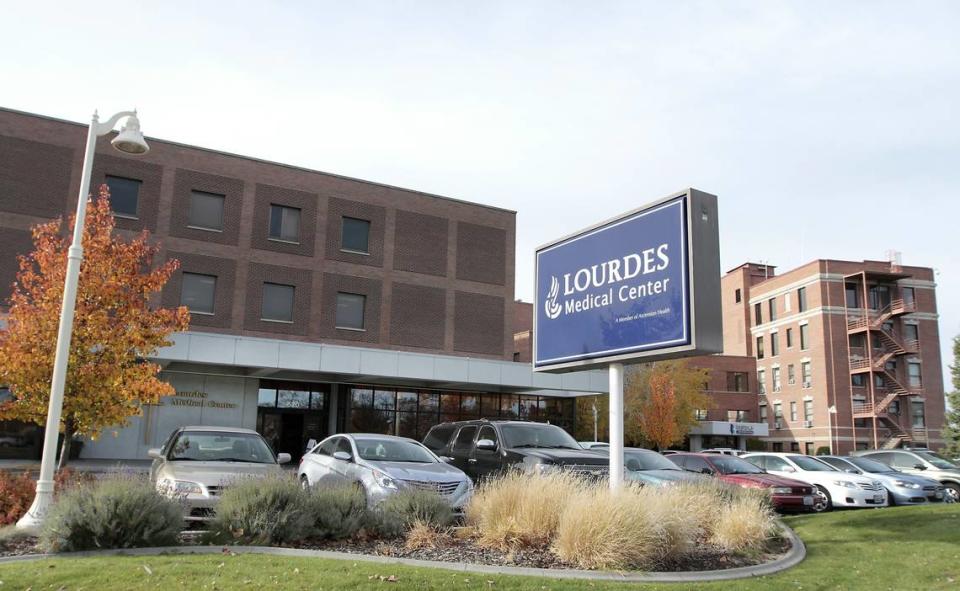
Funding, other initiatives
If Franklin County commissioners choose to use their 0.01 cent sales tax collection to pay for the sobering center, they could partner with Benton County through an interlocal agreement to help offset some of the funding needs.
Rasmussen told Franklin County Administrator Mike Gonzalez that their construction funds for the behavioral health center are tied up, but they may be able to help with ongoing costs.
But first, Franklin County will have to make the decision to move forward.
Costs for operating the Columbia Valley Center for Recovery are being paid for through a combination of sales tax collection, state and federal grants and money from Opioid lawsuit settlements. The money for construction on the center is largely from grants and American Rescue Plan Funding.
Comprehensive Healthcare, which won the contract to operate the recovery center, is also expected to bring a plan for crisis field responders to the committee this month. That could be approved in June if the committee is happy with the plan and its potential costs.
Columbia Basin College also will be launching a new addiction and recovery related program this fall to help educate future mental healthcare workers in the region. They plan to have classes available for certification and as electives to supplement other healthcare credentials.
More details on those courses should be available this summer.

